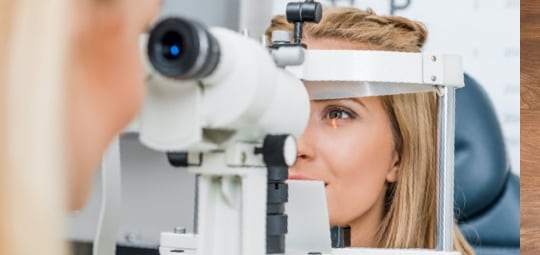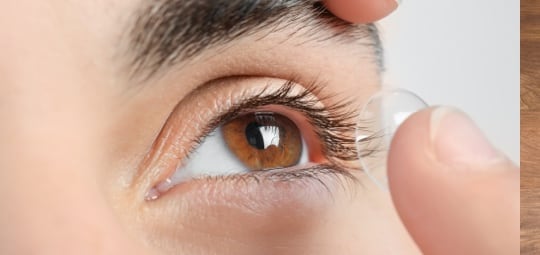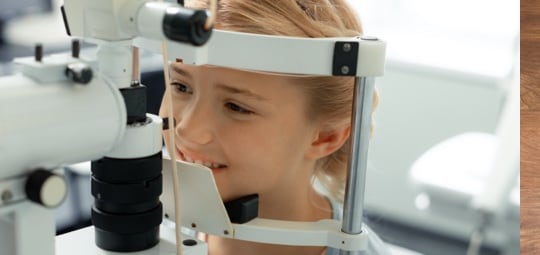Look Inside Your Eyes for Better Visual Health
Retinal exams allow your optometrist to see your inner eye in great detail. This can lead to early diagnosis of eye problems. Book a retinal evaluation to safeguard your sight.
Your Retina’s Key Role in Vision
The retina is the back wall of the inner eye. Lined with photosensitive rods and cones, it’s responsible for sending signals from your eye down the optic nerve to your brain, where the signals are processed and turned into the images we see.
We use ocular coherence tomography and optomapping to examine the retina. These tests give us a detailed picture of retinal health. These tests may require dilating drops that will affect your vision for a few hours following your appointment—remember to bring sunglasses and arrange to have someone drive you home.
Conditions That Can Impact the Retina
Since the retina is such a crucial part of your visual system, any potential damage needs to be diagnosed as soon as possible to maintain good eye health. Click on the titles to learn more about some conditions that can cause vision problems.
Diabetic Retinopathy
Diabetic retinopathy is caused by high blood sugar that occurs due to unmanaged diabetes. Over time, high blood sugar causes the blood vessels near the retina to swell, weaken, and leak, which can lead to vision loss.
Learn more about diabetic retinopathy and other diabetic eye diseases here.
Age-Related Macular Degeneration
Age-related macular degeneration (AMD) is a condition that affects your central vision, which is the vision you call upon to see details and recognize faces. It damages the macula, the central part of the retina responsible for detailed central vision.
There are few symptoms in the early stages, but late-stage AMD is characterized by:
- Dull color vision
- Straight lines appearing wavy or curved
- Blurry central vision
- Blank spots in the central vision
There are 2 types of AMD: dry AMD is caused by accumulations of drusen (small lipid deposits), and wet AMD is caused by fluid leakage from the blood vessels behind the retina.
Retinal Detachment
Retinal detachment occurs when the layer of cells that form the retina pulls away from the back of the eye. This causes symptoms such as:
- A shadowed field of vision
- Blurred vision
- Flashes and floaters
This separates the retina from the blood vessels that provide oxygen. When retinal detachment occurs, vision loss can follow.
Visit See B. Seen to Protect Your Retinal Health
You can’t determine the health of your retina by just looking at your eye. Come in for regular eye exams and let a trained professional take an in-depth look at the back of your inner eye. Catch eye conditions before they cause problems—book an appointment with Dr. Robinson.
Our Location
You can find our practice next to Main Squeeze Juice Co on Parkwood Avenue. If you have any trouble finding our office or have any questions before your visit, please give us a call.

Our Address
- 1501 W Parkwood Ave, Ste 101
- Friendswood, TX 77546
Contact Us
- Phone: 281-612-6996
Hours of Operation
- Monday: 10:00 AM – 5:00 PM
- Tuesday: 10:00 AM – 5:00 PM
- Wednesday: 10:00 AM – 5:00 PM
- Thursday: 10:00 AM – 5:00 PM
- Friday: 10:00 AM – 2:00 PM
- Saturday: Closed
- Sunday: Closed
Our Brands









